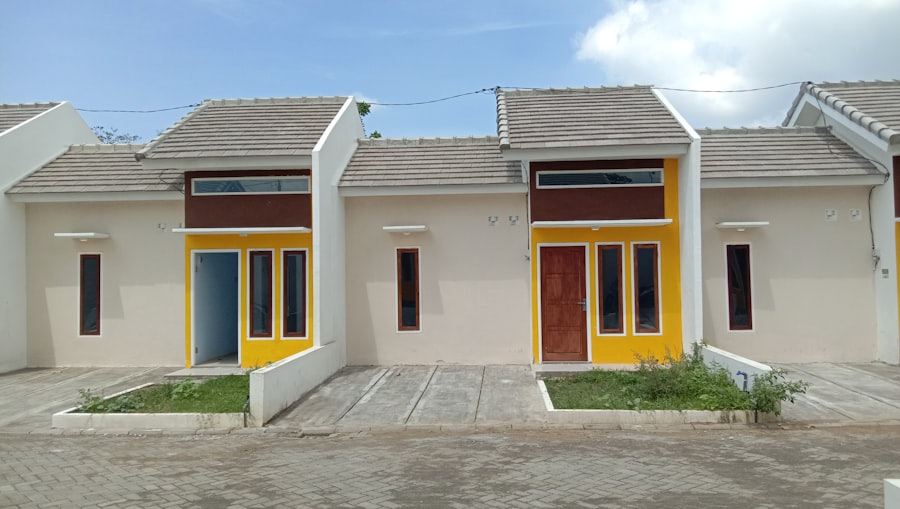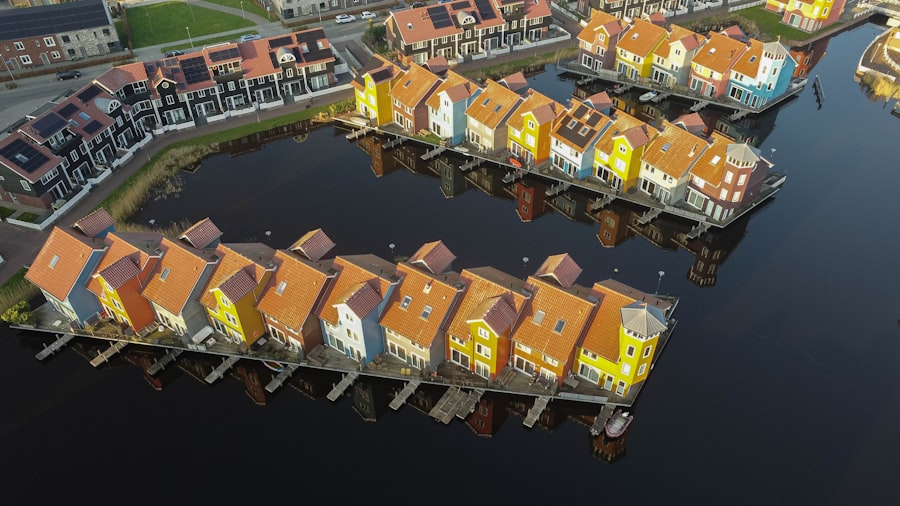Modular homes are a unique and innovative approach to residential construction, distinguished by their method of assembly. Unlike traditional homes that are built entirely on-site, modular homes are constructed in sections, or “modules,” in a factory setting. These modules are then transported to the building site, where they are assembled on a permanent foundation.
This method not only streamlines the construction process but also allows for greater quality control, as the controlled environment of a factory minimizes the impact of weather and other external factors that can affect building materials. The design of modular homes is highly versatile, accommodating a wide range of architectural styles and layouts. From contemporary designs with open floor plans to more traditional styles that evoke classic charm, modular homes can be tailored to meet the aesthetic preferences of homeowners.
Additionally, modular construction adheres to the same building codes and standards as site-built homes, ensuring that they are just as safe and durable. This understanding of modular homes sets the stage for exploring their numerous benefits, which have made them an increasingly popular choice among homebuyers.
Key Takeaways
- Modular homes are factory-built and assembled on-site, offering efficient construction.
- They provide benefits like faster build times, cost savings, and energy efficiency.
- Local listings and online resources can help find modular homes for sale nearby.
- Costs vary based on size, customization, and location, but modular homes often cost less than traditional homes.
- Financing options and choosing a reputable builder are crucial steps in purchasing a modular home.
Benefits of Modular Homes
One of the most significant advantages of modular homes is their efficiency in construction time. Because the modules are built in a factory while site preparation occurs simultaneously, the overall timeline from conception to completion is significantly reduced. Homeowners can often move into their new homes within a few months, compared to the longer timelines associated with traditional construction methods.
This rapid turnaround is particularly appealing for those who need to relocate quickly or are eager to settle into their new living spaces. Cost-effectiveness is another compelling benefit of modular homes. The factory setting allows for bulk purchasing of materials and streamlined labor processes, which can lead to lower overall costs compared to traditional building methods.
Additionally, because modular homes are built to be energy-efficient, homeowners may experience reduced utility bills over time. Many modular homes incorporate sustainable building practices and materials, further enhancing their appeal to environmentally conscious buyers. The combination of lower initial costs and long-term savings makes modular homes an attractive option for many prospective homeowners.
Finding Modular Homes for Sale Near Me

When searching for modular homes for sale, potential buyers can utilize various resources to streamline their search process. Online real estate platforms have become invaluable tools for homebuyers, offering comprehensive listings that include modular homes in specific geographic areas. Websites such as Zillow, Realtor.com, and specialized modular home retailers provide filters that allow users to narrow down their search based on location, price range, and desired features.
In addition to online resources, local real estate agents can be instrumental in finding modular homes for sale. Agents with experience in modular construction can provide insights into available properties and help navigate the complexities of purchasing a modular home. They may also have access to listings that are not yet publicly available, giving buyers an edge in a competitive market.
Networking within local communities or attending home shows focused on modular construction can also yield valuable leads on available properties.
Cost Considerations for Modular Homes
| Cost Factor | Description | Typical Range | Impact on Total Cost |
|---|---|---|---|
| Base Construction Cost | Cost of building the modular home units in the factory | 50,000 – 150,000 | 60% – 75% |
| Site Preparation | Clearing, grading, foundation, and utility hookups | 10,000 – 40,000 | 10% – 20% |
| Transportation | Shipping modules from factory to site | 5,000 – 15,000 | 5% – 10% |
| Assembly & Installation | On-site assembly, crane rental, and finishing work | 10,000 – 30,000 | 10% – 15% |
| Permits & Fees | Local building permits, inspections, and impact fees | 1,000 – 5,000 | 1% – 3% |
| Customization & Upgrades | Additional features, finishes, and design changes | Varies widely | Variable |
| Financing Costs | Loan interest, insurance, and closing costs | Varies | Variable |
Understanding the cost structure associated with modular homes is crucial for prospective buyers. The price of a modular home can vary significantly based on factors such as size, design complexity, and location. On average, modular homes can range from $100 to $200 per square foot, which is often more affordable than traditional site-built homes.
However, it is essential to consider additional costs beyond the base price of the home itself. Site preparation costs can add to the overall expense of purchasing a modular home. This includes expenses related to land acquisition, foundation work, utility connections, and landscaping.
Buyers should also factor in costs for permits and inspections required by local building authorities. While modular homes can offer significant savings compared to traditional construction, it is vital for buyers to conduct thorough research and budgeting to ensure they understand the total financial commitment involved in their purchase.
Customization Options for Modular Homes
One of the most appealing aspects of modular homes is the extensive customization options available to buyers. Many manufacturers offer a range of floor plans and design features that allow homeowners to tailor their living spaces according to their preferences. From selecting the layout of rooms to choosing finishes such as flooring, cabinetry, and countertops, buyers have significant input into the final appearance of their homes.
Beyond aesthetic choices, customization can also extend to energy-efficient features and smart home technology. Homeowners may opt for solar panels, high-efficiency HVAC systems, or advanced insulation materials that enhance energy performance. The ability to personalize both the design and functionality of a modular home ensures that it meets the unique needs and lifestyle preferences of its occupants, making it a truly individualized living space.
Financing Options for Modular Homes

Financing a modular home can be similar to securing a mortgage for a traditional home; however, there are some nuances that potential buyers should be aware of. Many lenders offer financing options specifically tailored for modular homes, recognizing their growing popularity in the housing market. Buyers may choose between conventional loans, FHA loans, or VA loans depending on their eligibility and financial situation.
It is essential for buyers to work with lenders who have experience in financing modular homes, as they will be familiar with the specific requirements and appraisal processes associated with these properties. Some lenders may require additional documentation or inspections due to the unique nature of modular construction. Understanding these financing options and working with knowledgeable professionals can help streamline the process and ensure that buyers secure favorable terms for their new homes.
Choosing the Right Modular Home Builder
Selecting a reputable modular home builder is a critical step in ensuring a successful home-buying experience. Prospective buyers should conduct thorough research on various builders in their area, looking for those with a solid track record and positive customer reviews. It is advisable to visit model homes or completed projects to assess the quality of construction and craftsmanship firsthand.
In addition to evaluating the builder’s reputation, buyers should inquire about the range of customization options available and the level of support provided throughout the purchasing process. A good builder will offer transparent communication and guidance from initial design concepts through final assembly on-site. Establishing a strong partnership with a reliable builder can significantly enhance the overall experience of purchasing a modular home.
Steps to Purchasing a Modular Home
The process of purchasing a modular home involves several key steps that prospective buyers should follow to ensure a smooth transaction. First, it is essential to determine budgetary constraints and secure financing before beginning the search for a home. This financial groundwork will help narrow down options and set realistic expectations regarding what is affordable.
Once financing is in place, buyers can begin exploring available modular home designs and builders. Engaging with real estate agents who specialize in modular construction can provide valuable insights into current market trends and available properties. After selecting a builder and finalizing design choices, buyers will need to navigate site preparation and permitting processes before construction begins.
Throughout this journey, maintaining open communication with all parties involved—builders, lenders, and real estate agents—will facilitate a more efficient process. As construction progresses, regular site visits can help ensure that everything aligns with expectations and specifications. By following these steps diligently, prospective homeowners can successfully navigate the complexities of purchasing a modular home and ultimately enjoy the benefits of this innovative housing solution.



